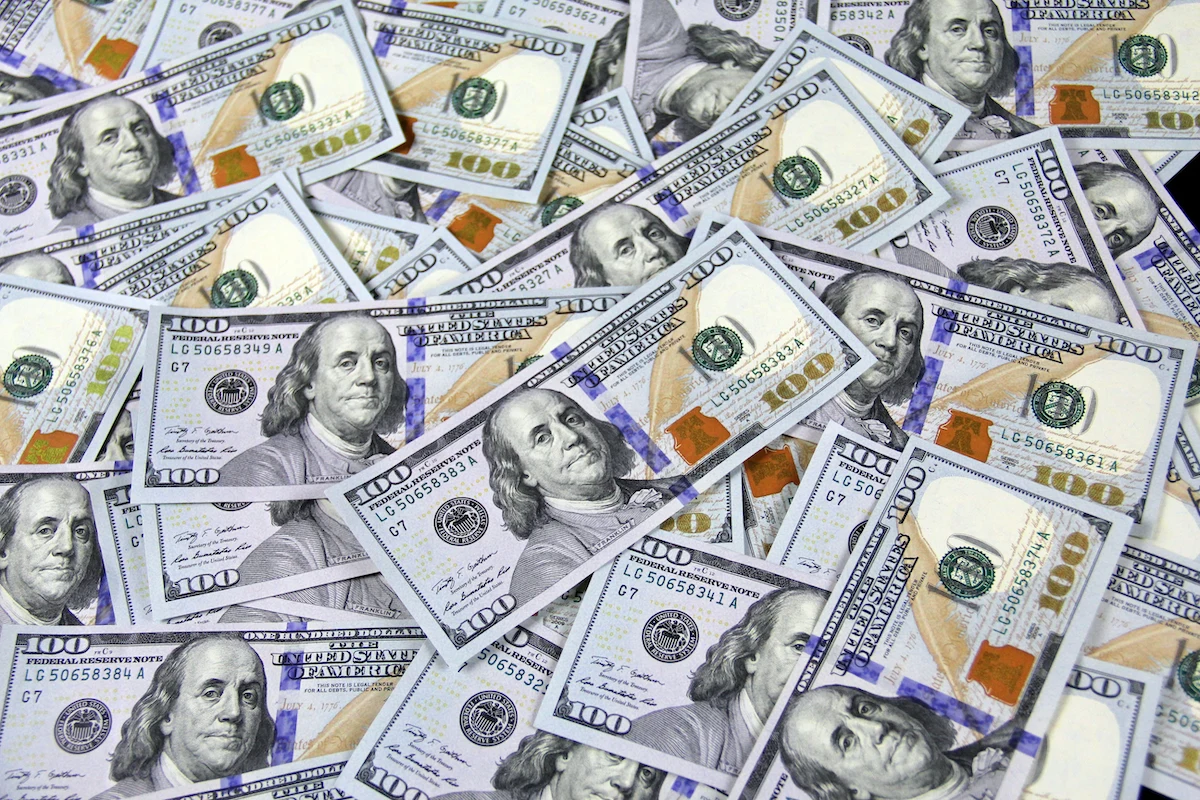What is a money market fund?

One hundred dollar United States banknotes from Pexels.
It's no secret that banks are not currently paying a whole lot of interest to depositors. That's despite sharp increases in the effective federal funds rate since 2022. As a result, some bank depositors — myself included — are shifting to money market funds, seeking higher yields for their cash.
So what is a money market fund?
What is a money market fund?
A money market fund is a type of mutual fund that invests in instruments with short maturities, also known as money market instruments. Money market instruments may mature in as little as one day, or as long as one year. They include:
- U.S. Treasuries, especially treasury bills;
- Municipal securities, including municipal bonds;
- Commercial paper, an unsecured debt instrument issued by corporations to meet short-term financing needs;
- Certificates of deposit;
- Repurchase agreements, or repos, in which a dealer sells a security with the promise to buy it back at a slightly higher price; and
- Banker's acceptances, which is a bit like a post-dated check that's backed by a bank and not your dodgy Uncle Earl.
Repurchase agreements, commercial paper, and banker's acceptances are usually traded by institutional investors such as banks, investment houses, family offices, and university endownments. A money market fund may invest in one or all of these types.
Money market funds are not money market accounts
Don't confuse money market funds with money market accounts. Although they have a similar name, they are very different vehicles.
A money market account is a type of deposit account offered by banks and credit unions. It is an interest-bearing account that combines some features of a traditional savings account and a checking account.
Money market accounts pay higher interest rates compared to regular savings accounts. In exchange for this higher rate, you may have limits on the number of transfers and/or withdrawals you can make during a statement cycle. You'll usually need to maintain a minimum balance, too.
Money market accounts are also insured, either by the Federal Deposit Insurance Corporation (FDIC) in the case of banks or by the National Credit Union Administration (NCUA) for credit unions, up to federal limits. As of May 2023, that limit is $250,000.
Money market funds — also called money funds — on the other hand:
- are mutual funds sold through and held at a brokerage such as Schwab, Fidelity, Vanguard, T. Rowe Price or E-Trade;
- are regulated by the United States Securities and Exchange Commision (SEC).
- are neither FDIC nor NCUA insured; and
- pay dividends and distributions instead of interest.
Although money market funds are not insured, they are still low-risk, particularly when compared to stocks. To invest in one, you'll need to open an account at an online brokerage. Most firms offer a few money market funds under their own umbrellas.
Why invest in a money market fund?
So why invest in a money market fund? You'll earn higher returns than a savings account while maintaining a higher degree of liquidity than certificates of deposit, savings bonds, and treasury bills. You're giving up potential price growth relative to stocks in favor of slow, steady, low-volatile growth.
As of May 26, 2023, for example, the 7-day SEC yield1 for the Vanguard Treasury Money Market Fund (VUSXX) is 5.03%. The Fidelity Government Money Market Fund (SPAXX) has a yield of 4.74%. Schwab’s Value Advantage Money Fund (SWVXX) has a 7-day SEC yield of 4.90%. These yields are in line with recent CD rates, but don't require you to tie up your money for several months or years.
What's more, if you invest in a municipal money market fund, your dividend and capital gains distributions may be tax-exempt.
Money market fund risks
It is possible to lose money, by investing in a money market fund. This can happen when benchmark interest rates fall so low that the fund can't earn enough of a return to cover its operating costs.
Losing money in a money market fund is rare, however. Money market funds invest in short-term debt instruments issued by governments, banks, and corporations with high credit ratings. These entities generally have the capacity to pay their debts, and a track record of doing so.
Of course, there's always political risk. The United States Congress can decide to burn it all down and default on trillions in United States treasury debt. If that ever happened, government and treasury money market funds would likely run into trouble. Since money market funds are investment products, not banking products, if the fund fails, you'd lose your principal.
A U.S. default would introduce so much chaos into the world's economy that I'm not sure you can make a plan to invest around it. That's why I still think money market funds are a great way to accelerate your savings without compromising too much on liquidity or risk.
Here's where I remind you that I am not a financial professional. You may wish to speak to a financial professional before investing in a money market fund.
-
This is the seven day distribution expressed as an annualized rate. The higher the rate, the higher the estimated return over the course of a year. Keep in mind that this may change over the course of a year. ↩